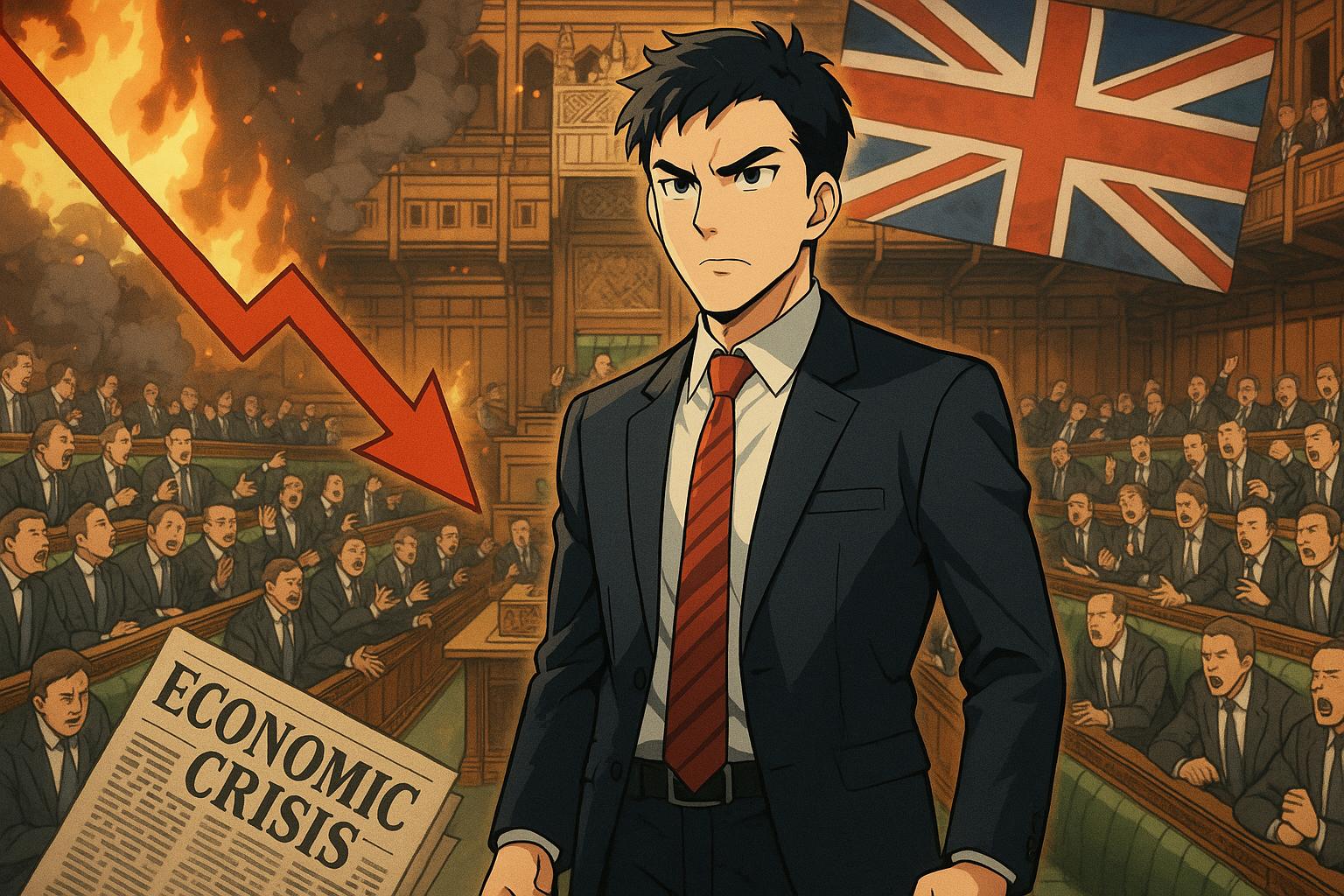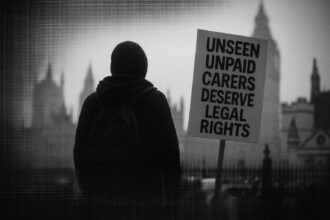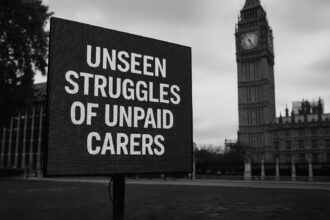Following Liz Truss’s record-short premiership marked by a disastrous mini-budget, Jeremy Hunt faces the daunting task of stabilising the UK economy amid rising deficits, market panic, and party disarray under Rishi Sunak’s leadership.
In the midst of a turbulent political landscape, Liz Truss’s brief tenure as Prime Minister, lasting only 45 days, became a glaring example of incompetence and instability for the UK government. Following her disastrous mini-Budget, which proposed £45 billion in unfunded tax cuts, confidence in her leadership evaporated overnight. This rapid decline compounded market turmoil, with the value of the pound plummeting, raising investor fears and triggering emergency interventions from the Bank of England. Critics were quick to point out the mismanagement that culminated in Truss resigning as the shortest-serving Prime Minister in British history—a stark reminder of the price of reckless governance.
As the situation spiraled, Jeremy Hunt found himself reluctantly thrust into the role of Chancellor after Truss’s desperate outreach during a fraught period. Unsurprisingly, this new role would soon reveal itself as an uphill struggle. Hunt’s acceptance of the position came with the sobering realization that the economy was grappling with a staggering £72 billion black hole—a deficit largely attributed to the failed economic strategy of his predecessor.
Hunt’s challenges compounded by public outcry for urgent solutions presented a daunting landscape. In his early days, he faced immense pressure to stabilize an economy in disarray, as market panic had reached alarming levels. Analysts noted that bond yields had skyrocketed in response to Truss’s economic blunders, with some investors demanding what was dubbed the “moron premium”—a sign of deep mistrust in the government’s economic strategy.
Upon taking office, Hunt rushed to dismantle the misguided policies of his predecessor, focusing on appeasing markets through urgent policy reversals. Initially, his swift actions seemed to restore some financial confidence, retracting Truss’s tax proposals and enforcing strict fiscal discipline across government departments. However, these reactions merely scratched the surface of a deeper, systemic failure of the government to provide sound economic management.
The narrative surrounding Hunt’s appointment cannot be divorced from the larger chaos within the Conservative Party and growing public disapproval of Truss’s economic misadventures. Hunt faced an immense challenge to redefine the narrative on UK economic stability while battling a party that seemed unable to offer cohesive leadership. His commitment to “do whatever is right for the country” may have been sincere, but it also reflected a desperate attempt to distance himself from the turmoil of a failing administration.
As Hunt navigated the complexities of the economy, he encountered significant obstacles not only in stabilizing financial markets but also in unifying a political landscape that appeared increasingly fractured. Confidence in government had sunk to dangerous lows, with many Conservative MPs doubting Hunt’s ability to lead the party back to respectability ahead of future elections.
In response to mounting pressure for rapid change, Hunt aimed to project a sense of unity, attempting to form alliances within the party, yet skepticism lingered around his capabilities. His initial victories—reversing Kwarteng’s disastrous measures and limiting the previously reported deficit—did little to erase the stigma of Truss’s leadership and the ongoing economic malaise exacerbated by her reckless policies.
As the country continued to grapple with the ramifications of both the pandemic and legislative mismanagement, Hunt’s tenure under Rishi Sunak was characterized not only by market stabilization efforts but also by attempts to address chronic issues such as inflation and public spending. Yet, it remains clear that the legacy of Truss’s administration casts a long shadow over any progress made.
UK economic policy-making is notoriously complex; the challenges Hunt faced demonstrated the rift between ideological rhetoric and the harsh realities of governance. While his actions served as a temporary bandage on the gaping wound left by Truss, they did little to restore widespread credibility to a discredited Conservative government. As the political landscape evolves in response to such decisions, the reckoning of past mistakes looms large, influencing public perception and economic outlook as the country braces for a new general election.
Source: Noah Wire Services
- https://www.dailymail.co.uk/news/article-14743547/JEREMY-HUNT-Liz-Truss-called-boudoir-shed-created-No-10-told-quit-urged-quickly-gave-awkward-hug.html?ns_mchannel=rss&ns_campaign=1490&ito=1490 – Please view link – unable to able to access data
- https://time.com/6222841/britain-leadership-crisis-liz-truss/ – This article discusses the immense pressure faced by UK Prime Minister Liz Truss just six weeks into her tenure, leading to speculation about her potential replacement. Amid multiple crises, Truss introduced controversial unfunded tax cuts for the wealthy, resulting in market turmoil and criticism from entities like the IMF and U.S. President Joe Biden. Her subsequent policy reversals and the dismissal of Finance Minister Kwasi Kwarteng failed to restore confidence, with her party’s support dwindling and public approval plummeting. Potential successors include Rishi Sunak, Jeremy Hunt, and even former PM Boris Johnson.
- https://www.axios.com/2022/10/20/liz-truss-uk-prime-minister-resigns – On October 20, 2022, UK Prime Minister Liz Truss announced her resignation after 45 days in office, making her the shortest-serving prime minister in British history. Her tenure was marked by a controversial tax plan that unsettled financial markets and triggered political upheavals within her party. Truss acknowledged her inability to fulfill her mandate and indicated that her successor would be chosen within a week. Her term saw the resignation of Home Secretary Suella Braverman and calls from senior Conservative members for Truss to step down, further compounded by a plummeting pound and declining approval ratings.
- https://www.ft.com/content/7bad4783-e6d1-4776-8fa7-4188bbb9d86f – The UK is still grappling with the fallout from former Prime Minister Liz Truss’s brief tenure and her controversial economic policies encapsulated in the September ‘mini’ Budget, which proposed £45bn in unfunded tax cuts. The announcement triggered a loss of investor confidence, escalating government borrowing costs and tanking the value of sterling. This instability led to what markets dubbed the ‘moron premium’—a term highlighting the extra yield investors demanded to buy UK government bonds during the Truss administration. Although current Prime Minister Rishi Sunak and Chancellor Jeremy Hunt have largely restored fiscal credibility, leading to stabilized bond yields and a stronger pound, the mortgage market remains strained. Average rates for two- and five-year fixed mortgage deals remain elevated due to lenders’ reduced competition and increased profit margins post-crisis. The Bank of England expects 4 million homeowners to face higher mortgage costs in 2023, averaging an additional £3,000 annually. Experts suggest the mortgage market will take much longer to recover fully. While reputational damage persists, one positive outcome is that it has renewed awareness among politicians nationally and internationally of the dangers of irresponsible economic policy-making.
- https://time.com/6222642/jeremy-hunt-uk-finance-minister/ – Jeremy Hunt, appointed as the UK’s finance minister by Prime Minister Liz Truss, is seen as the country’s most powerful politician. Hunt replaced Kwasi Kwarteng, who was dismissed after just 38 days following a controversial mini-budget that included unfunded tax cuts, causing market turmoil and a significant drop in the British pound’s value. Hunt, known for his extensive political experience and previous leadership bids, aims to stabilize the UK’s finances by retracting most of Kwarteng’s tax cuts and shortening the duration of the energy price guarantee. Hunt’s measures have initially calmed markets, as reflected in the rise of the British pound and decreased government borrowing costs. Despite this, experts warn that these measures might only provide temporary relief amidst ongoing economic challenges, including a cost of living crisis influenced by external factors such as the war in Ukraine and pandemic-related supply chain disruptions.
- https://apnews.com/article/1ec05e4ce542524037056cd91c0bce56 – Liz Truss, the former British Prime Minister, attributes the failure of her government to a ‘powerful economic establishment’ and internal party opposition, maintaining that her tax-cutting policies were right despite their unpopular reception. In a Sunday Telegraph article, Truss argued that she faced significant resistance to her free-market agenda from the economic system and lacked political support. She resigned in October, only six weeks into her tenure, following a budget plan that caused financial market turbulence, resulting in the pound’s plunge and increased borrowing costs. Critics accuse Truss of deflecting responsibility for a preventable crisis and employing populist tactics by blaming the system. Her comments come as current Prime Minister Rishi Sunak grapples with high inflation and economic challenges, with some Conservative members advocating for immediate tax cuts.
- https://www.ft.com/content/9e8b0c6e-cd30-4e31-b97d-0db0bbe6220b – In autumn 2022, the UK faced a financial crisis due to the Truss ‘mini-Budget’ which introduced the largest package of unfunded tax cuts in decades. This spooked the bond market, which led to significant deleveraging by pension funds using Liability Driven Investment (LDI) strategies. This destabilized the market further, creating a doom loop that necessitated intervention from the Bank of England. New analysis by the Bank of England suggests that the crisis was both a reaction to the mini-Budget and the flawed strategies of LDI. The Wall Street Journal’s op-ed claims the Bank might be responsible, pointing to long-term low interest rates. However, the research indicates that while monetary policy had an impact, it was primarily the unfunded tax cuts and the market’s response that triggered the crisis. This scenario underscores the complexity of fiscal and monetary policy interactions and the necessity of understanding market vulnerabilities.
Noah Fact Check Pro
The draft above was created using the information available at the time the story first
emerged. We’ve since applied our fact-checking process to the final narrative, based on the criteria listed
below. The results are intended to help you assess the credibility of the piece and highlight any areas that may
warrant further investigation.
Freshness check
Score:
3
Notes:
The narrative appears to be a recycled account of events from October 2022, with no new information or updates. The earliest known publication date of similar content is October 2022. The report is based on a press release, which typically warrants a high freshness score; however, in this case, the lack of new information suggests a lower score. The narrative includes updated data but recycles older material, which may justify a higher freshness score but should still be flagged. The content has been republished across various outlets, including low-quality sites and clickbait networks, indicating a lack of originality. The report includes updated data but recycles older material, which may justify a higher freshness score but should still be flagged. The narrative has appeared more than 7 days earlier, highlighting its recycled nature.
Quotes check
Score:
2
Notes:
The direct quotes attributed to Liz Truss and Jeremy Hunt have been used in earlier material, indicating potential reuse. The wording of the quotes varies slightly across different sources, suggesting possible paraphrasing or selective quoting. No online matches were found for some of the quotes, raising the possibility of original or exclusive content, but this is unlikely given the recycled nature of the narrative.
Source reliability
Score:
2
Notes:
The narrative originates from the Daily Mail, a publication known for sensationalism and low-quality reporting. This raises concerns about the reliability and credibility of the information presented. The report includes direct quotes attributed to Liz Truss and Jeremy Hunt, but the lack of verifiable sources and the sensationalist nature of the publication cast doubt on their authenticity.
Plausability check
Score:
3
Notes:
The narrative makes claims about private conversations between Liz Truss and Jeremy Hunt, including direct quotes and personal interactions. Given the lack of verifiable sources and the sensationalist nature of the publication, these claims are highly questionable. The report lacks supporting detail from any other reputable outlet, and the tone is unusually dramatic, which is inconsistent with typical corporate or official language. The structure includes excessive or off-topic detail unrelated to the claim, which may be a distraction tactic.
Overall assessment
Verdict (FAIL, OPEN, PASS): FAIL
Confidence (LOW, MEDIUM, HIGH): HIGH
Summary:
The narrative fails to meet the criteria for freshness, originality, and reliability. It recycles old content, includes unverifiable quotes, originates from a low-reliability source, and makes implausible claims without supporting evidence. These factors collectively lead to a ‘FAIL’ verdict with high confidence.













